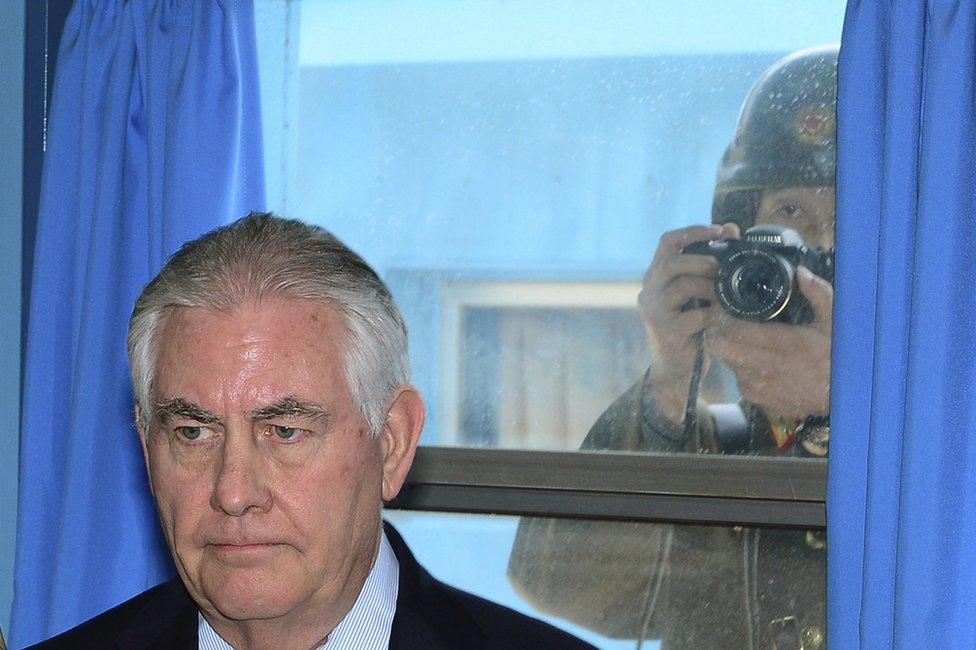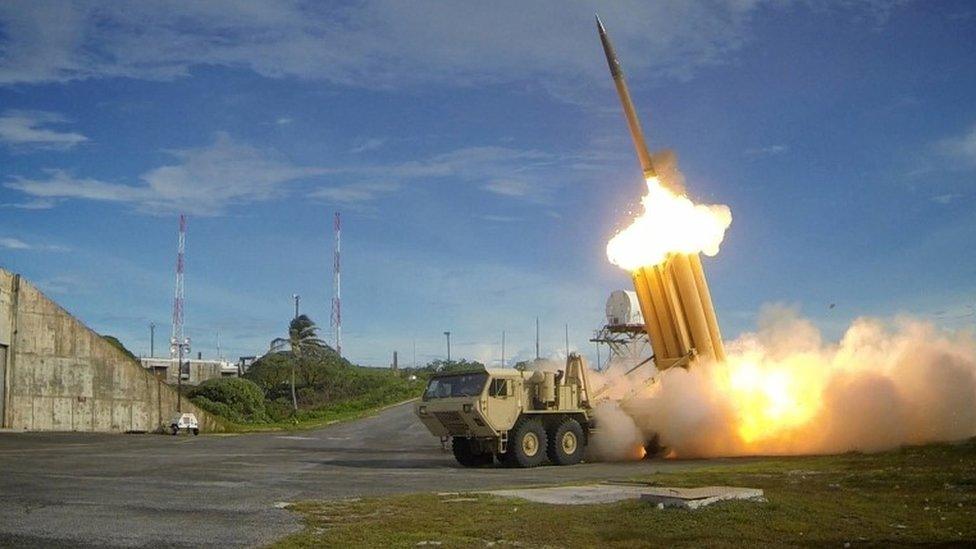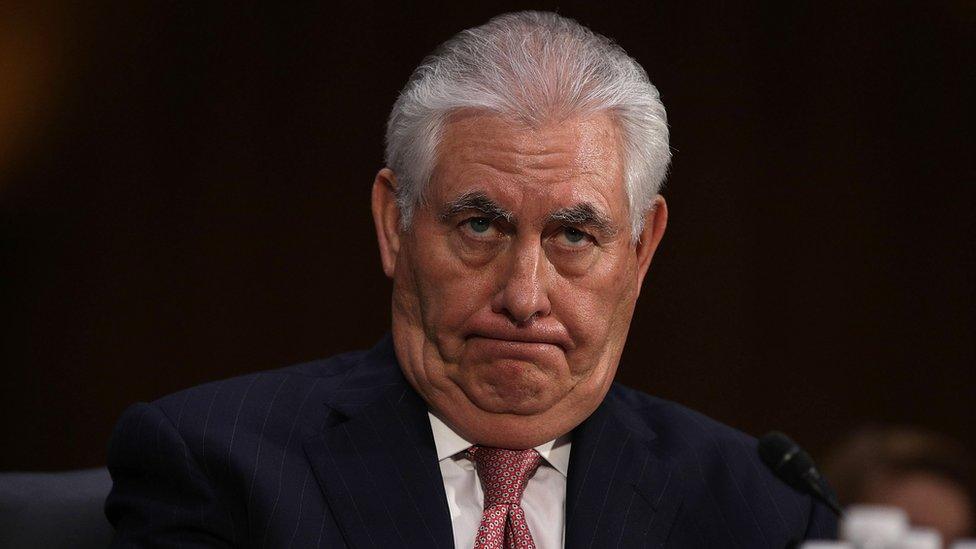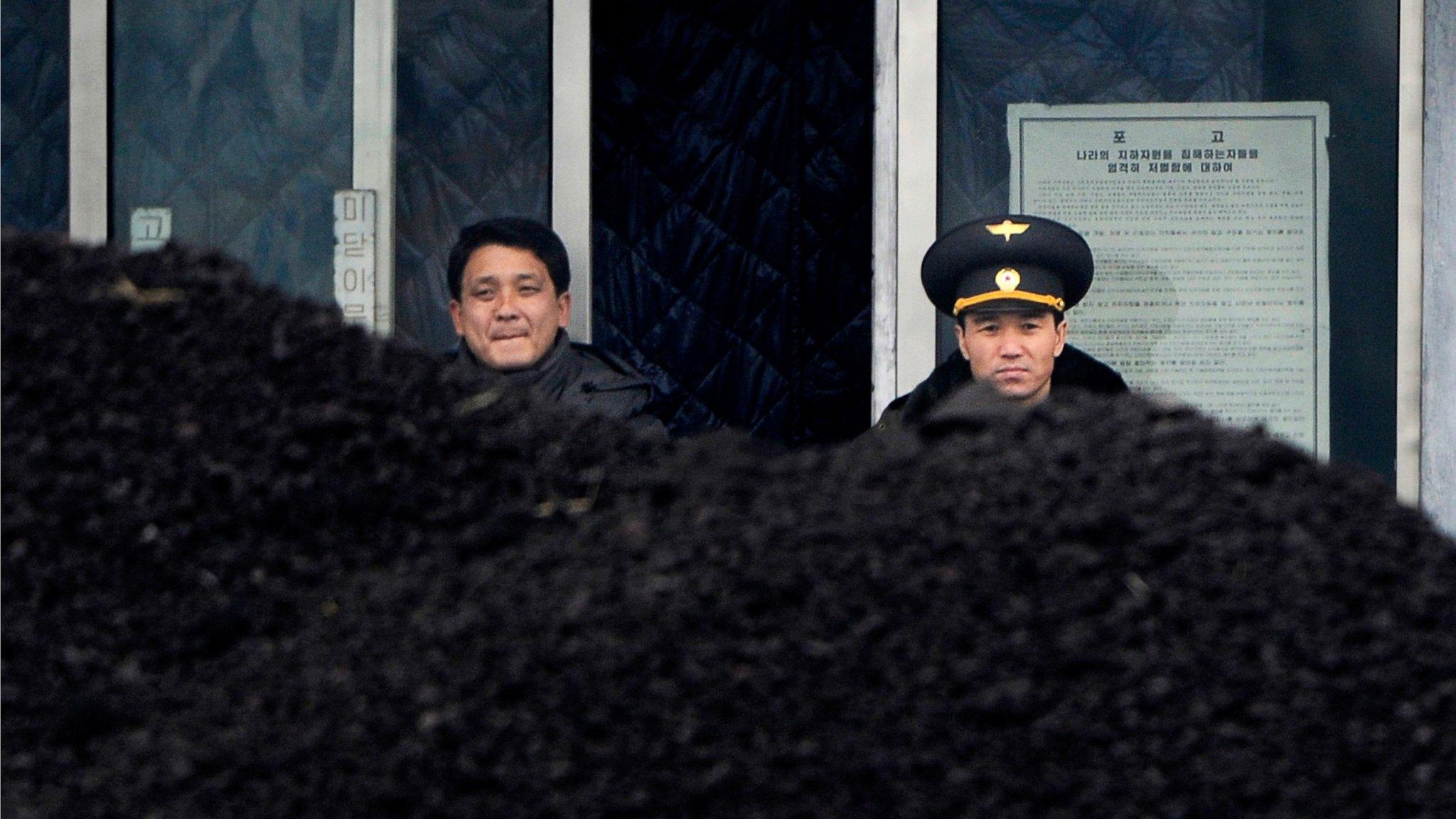Rex Tillerson on North Korea: Military action 'an option'
- Published
- comments
North Korea dominates Rex Tillerson's tour of East Asian countries
The US has said its policy of "strategic patience" with North Korea is over and suggested it might decide to take pre-emptive military action.
Secretary of State Rex Tillerson said the option was "on the table" if the threat from the North's weapons programme reached a level requiring it.
During a visit to South Korea, he also said the US was exploring a range of new diplomatic and economic measures.
And he defended the deployment of a US missile system in South Korea.
The move has angered China, but South Korea and the US say the system is needed as a defence against North Korean aggression.
How do you solve a problem like North Korea?
US President Donald Trump tweeted, external that North Korea was "behaving very badly" and had been "playing" the US "for years". "China has done little to help!" he added.
Mr Tillerson spoke shortly after visiting the demilitarised zone which divides the two Koreas.
He arrived in South Korea from Japan, where he had said that 20 years of efforts designed to persuade North Korea to abandon its nuclear ambitions had failed.
Asked if the possibility for military action existed, he said: "Certainly we do not want to, for things to get to military conflict."
But he added: "If they elevate the threat of their weapons programme to a level that we believe requires action, then that option's on the table."
Secretary of State Rex Tillerson: US 'policy of strategic patience has ended'
North Korea has conducted nuclear and missile tests in recent years, and says it is close to testing long-range missiles capable of carrying nuclear warheads and reaching the US.

Big shift? Analysis by Stephen Evans, BBC News, Seoul
Mr Tillerson was blunt: the previous policy had ended. Despite that assertion, though, the difference between the Obama strategy and the Trump one is not obvious. Mr Obama had not ruled out military force and Mr Tillerson thinks sanctions might yet work.
Both administrations ruled out negotiation - though Mr Tillerson said they would be "premature" at the moment, prompting the thought that there might come a time when they were the right thing to do.
At the end of it, the situation remains the same: North Korea shows no hint of being willing to renounce nuclear weapons, whatever economic blows it receives and whatever China might think.
Mr Tillerson heads for Beijing next, hoping China will help - but in the past Mr Trump has called China an "enemy".

'Unnecessary and troubling'
The US has accused China, North Korea's main ally, of not doing enough to rein it in but Beijing remains wary of any action that could destabilise the North Korean government and potentially create chaos on its border.

A North Korean soldier tried to take photographs through a window while Rex Tillerson visited the border
During his address in Seoul, Mr Tillerson called on China to fully implement sanctions imposed by the UN in response to North Korea's nuclear and missile tests.
"I don't believe we have ever fully achieved the maximum level of action that can be taken under the UN Security Council resolution with full participation of all countries," he said.
China is also strongly opposed to the deployment of the Terminal High Altitude Area Defense (Thaad) system in South Korea. America says the system is aimed at North Korea but China says it will allow the US to spy on its territory.

The deployment of the Thaad system has raised tensions between Beijing and Seoul
In recent days there have been multiple reports of apparent economic retaliation aimed at South Korea by Beijing. Mr Tillerson called these actions "unnecessary and troubling".
"We also believe it is not the way for a regional power to help resolve what is a serious threat for everyone," he said.
Mr Tillerson had talks with both South Korean Foreign Minister Yun Byung-se and Prime Minister Hwang Kyo-ahn, who is also the acting president.
However, the two sides opted not to have a meal together because Mr Tillerson, 64, was experiencing "fatigue", unnamed Seoul officials were quoted as saying, external by local newspaper the Korea Herald.
"We Americans have to get this news from the Korea Herald, because Tillerson won't let a press pool travel with him," New York Times columnist Carl Zimmer commented in a tweet, external.
- Published15 March 2017

- Published4 July 2017
